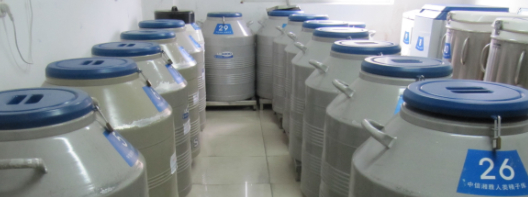Ayo Wahlberg receives the 2019 CAR Book Prize for his book on the Chinese fertility industry
Ayo Wahlberg has been awarded the 2019 Book Prize by the Council on Anthropology & Reproduction (Society for Medical Anthropology) for his monograph 'Good Quality – the Routinization of Sperm Banking in China'. The book provides an in depth, ethnographic account of the rise of reproductive technologies in ‘one-child policy’ China.

Ayo Wahlberg has been awarded the 2019 Book Prize by the Council on Anthropology & Reproduction (Society for Medical Anthropology) for 'Good Quality – the Routinization of Sperm Banking in China' (University of California Press).
The CAR Prize is awarded for books that show ethnographic richness and analytical depth in making a contribution to the anthropology of reproduction. The prize will be awarded at a ceremony during the annual meeting of the American Anthropological Association, the world’s largest gathering of anthropologists, in Vancouver on the 21st of November.
Professor Ayo Wahlberg has done seven years of research in the Chinese fertility industry, which forms the empirical outset of his book with the University of California Press. The research was carried out with the support of the Danish Council of Independent Research.
Chinese fertility industry
In 2015, the government famously tweaked its one-child policy into its current two-child policy, which for the first time since the 1980s allows all married couples to have two children, if they so wish. The problem is that, if early indications are anything to go by, it doesn’t seem that Chinese couples are interested.
China’s – and the world’s - largest fertility clinic has been Ayo Wahlberg’s main research site for his seven-year anthropological study.
The CITIC-Xiangya Reproductive and Genetic Hospital carries out over 40,000 treatments annually.
- The clinic’s sperm bank has described how my anthropological research led them to refocus their attention from their protocols towards their donors and users. They’ve gone from screening 3000 to 6000 potential donors per year, says Ayo Wahlberg.
For example, the clinic has changed its donation times for donors to regular weekday opening hours instead of scheduled timeslots.
Nevertheless, Ayo Wahlberg doesn’t think China’s low fertility will be changing any time soon.
- They will have to change their fertility culture first, not to mention introduce social changes, so life becomes easier for young Chinese families, he says.
Related News
Contact
Professor
Ayo Wahlberg
Mail: ayo.walhberg@anthro.ku.dk
Tel: +45 35 32 44 51
Communications Officer
Maj Bach Madsen
